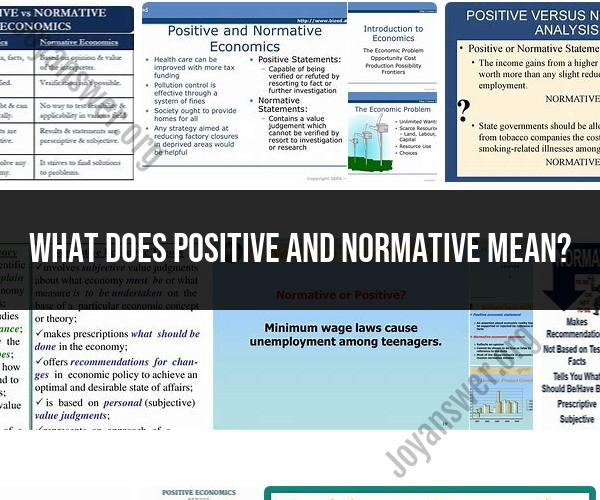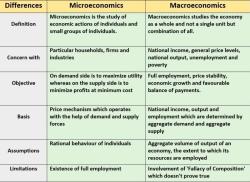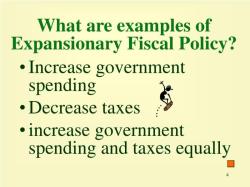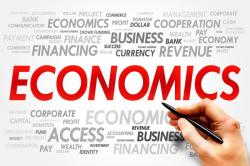What does positive and normative mean?
In economics, the concepts of "positive" and "normative" analysis refer to two different approaches to studying economic phenomena, and they help economists differentiate between objective, factual statements and subjective, value-based judgments. Here's an explanation of each concept:
Positive Analysis:Positive economics deals with objective, factual, and descriptive statements about how the economy functions. It focuses on explaining "what is" and is based on empirical evidence and data. Positive statements are often verifiable and do not involve value judgments or personal opinions. Instead, they aim to provide a neutral, scientific understanding of economic events, trends, and relationships.
Examples of positive statements in economics include:
- "An increase in the minimum wage has been shown to lead to a decrease in employment in certain industries."
- "Inflation rates in the country have averaged 2% over the past decade."
- "The demand for smartphones increased by 10% last year."
Positive analysis is concerned with providing an objective understanding of economic phenomena without making value judgments about whether they are good or bad.
Normative Analysis:Normative economics, on the other hand, deals with subjective, value-based judgments about "what ought to be" or what is "desirable." It involves making recommendations or expressing opinions about economic policies, outcomes, or actions based on individual or societal values and preferences. Normative statements are inherently subjective and cannot be proven or disproven using empirical data alone.
Examples of normative statements in economics include:
- "The government should increase taxes on high-income individuals to reduce income inequality."
- "The central bank should lower interest rates to stimulate economic growth."
- "A minimum wage of $15 per hour is a fair and just policy."
Normative analysis is concerned with evaluating economic issues from a value perspective and often involves debates about the ethical or moral implications of economic choices.
In summary, positive economics focuses on objective, fact-based analysis of economic phenomena, while normative economics deals with subjective, value-laden judgments and recommendations. Both types of analysis are important in economics, with positive analysis providing the foundation of understanding economic mechanisms, and normative analysis guiding the development of economic policies and decisions based on societal values and goals.












